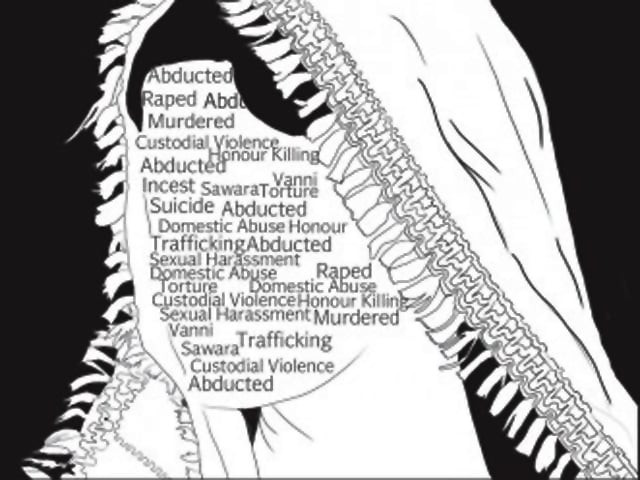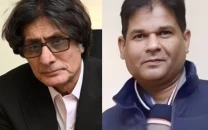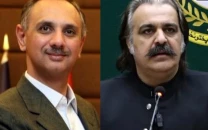Saying it as it is: Media continues to objectify women: speaker
The second day of a workshop on gender and labour issues discusses female harassment.

Media objectifies women and reduces them to their sex, unlike their male counterparts. Instead it should use its power to change peoples’ perceptions so that such objectification ceases.
This was stated by Zaigham Khan, a journalist on the second day of a training workshop on reporting on gender and labour, which took place here on Friday.
The session led to valuable insight for participating journalists in reporting gender sensitively and without discrimination.
As an exercise, two clippings from private news channels on the same event were screened (November 26 nurses strike in Lahore). The first clipping covered the strike objectively and stated the reasons for the strike (wage cuts), the number of people involved and the demands of the nurses. The second clip, however, cued to a popular Punjabi song and depicted one of the nurses being targeted by flirtation and ogling by the public including the police.
Some of the group identified the second clip as offensive and objectifying women as sexual objects and not even stating the reason for their protest. Furthermore, a newsworthy event was turned into an entertainment gimmick and women who were standing up for their rights were portrayed as victims. In contrast, some felt that the clip was interesting and showed a reality of gender relations: women are objectified in the media.
Another news clipping portrayed the Federal Minister for Foreign Affairs Hina Rabbani Khar as a style icon and not under her political designation, while she was visiting India. A male political figure’s attire, in contrast, is hardly ever deconstructed. Society and media reduce women in power to their clothes, which was seen to be very disempowering by the people in attendance. Even instances of Sherry Rehman being harassed verbally and sometimes physically at protests were taken up.
It was concluded that women are structurally discriminated against to keep them away from seats of power and affluence but once they do achieve success they are periodically objectified and harassed unlike their male counterparts. Some journalists felt that even male political figures are harassed and criticised but for different reasons: their politics and behaviour and not on the basis of their gender.
Khan noted that a good reporter is one who can interchange between sympathy, empathy and dispassion based on the needs of the situation and information.
Edward Said’s book “Orientalism” and his notion of reflexivity, the idea that a person’s thoughts and ideas tend to be inherently biased, was also discussed so journalists can be more attuned to the mental tools available to them for gender sensitive journalism.
The three-day workshop is being organised by the International Labour Organisation under their project “Gender Equality for Decent Employment”.
Published in The Express Tribune, December 10th, 2011.

















COMMENTS
Comments are moderated and generally will be posted if they are on-topic and not abusive.
For more information, please see our Comments FAQ